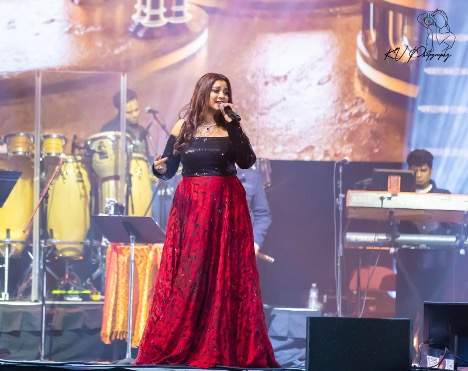
Fatima Tauseef outlines a scalable model for growing her cultural event company nationwide — bringing both cultural richness and sustainable economic impact to American cities.
With a vision to create an entertainment startup, Fatima Tauseef began laying the groundwork for a scalable model. Her goal was never limited to staging a few successful shows—she envisioned a national framework: a network of culturally immersive, economically beneficial events that could be reproduced across the U.S. with precision and consistency.
Today, as she unveils her five-year expansion plan, it’s clear that she’s not just outlining a business—she’s designing a scalable impact model at the intersection of culture, commerce, and community.
From Vision to Blueprint
Born and raised in Lahore, Pakistan, and now based in the U.S., Fatima blends academic rigor (a finance degree and an MBA in Information Technology) with deep cultural insight. After gaining industry experience as a Business Analyst at Worldstar Entertainment—where she helped execute major South Asian concerts across several states—she began developing her own production company to fill a structural gap in diaspora entertainment.
Her premise was simple: the cultural events space lacked repeatable systems. What if an event could be designed like a product—tested, refined, and then deployed in new markets with the same quality and economic return?
The Expansion Strategy
Fatima’s five-year plan focuses on creating five regional hubs—operational centers that manage localized production, talent coordination, logistics, and marketing. These hubs will allow her to scale without losing cultural nuance.
Each hub will:
- Host 8–10 large-scale events per year
- Employ local teams of producers, marketers, and technicians
- Partner with regional artists and community organizations
- Inject an estimated $500,000 annually into surrounding economies through tourism, freelance hiring, and vendor contracts
The company’s pilot events in Massachusetts, New Jersey, Illinois, and Texas have validated this model, generating six-figure local spending and attracting thousands of attendees.
Infrastructure over Instinct
What distinguishes Fatima’s approach from traditional event businesses is her reliance on data infrastructure. Her background in analytics allows her to forecast demand, calibrate ticket pricing, and tailor programming to hyper-specific audiences—Punjabi, Gujarati, Urdu-speaking communities, and more.
From custom seating plans to language-specific outreach campaigns, every decision is backed by metrics. Her platform also integrates customer feedback loops to refine experiences in real time.
This systematization is not just about efficiency—it’s what enables scale without sacrificing authenticity.
A Cultural Engine for Local Economies
Fatima is building a business where economic impact is a core product. In an era where cities are seeking inclusive ways to stimulate local economies, her events bring measurable value: hotel bookings, restaurant traffic, gig jobs, and transportation use all spike during event weekends.
Unlike one-off spectacles, her events are designed as recurring community infrastructure, offering reliable cultural programming and economic activity. And because her company works directly with immigrant workers, venue crews, and freelance creatives, the benefits circulate within the communities they serve.
Mentorship and Workforce Development
A crucial part of the five-year roadmap is talent pipeline creation. Fatima plans to launch a mentorship and apprenticeship initiative across her regional hubs, targeting young professionals—especially women—who want to enter the entertainment or event production industries.
By offering structured training in areas like logistics, budgeting, cultural programming, and digital promotion, she aims to build a workforce that reflects the audiences being served.
The Bigger Goal: Long-Term Infrastructure for Representation
Fatima’s long-term objective isn’t just to promote South Asian culture—it’s to institutionalize it within the U.S. entertainment ecosystem. That means building systems, not just events. Platforms, not just performances.
Her model doesn’t depend on legacy institutions or major labels. It grows from community-level needs, powered by data, discipline, and cultural fluency.
In 10 years, she envisions a company that doesn’t just serve the South Asian diaspora but offers a replicable framework for any underrepresented community looking to amplify its voice through live cultural programming.
Conclusion: A Startup Built for Cultural and Economic Resilience
Fatima Tauseef is not chasing trends—she’s building a category. Her five-year plan reflects what the next generation of entertainment startups could look like: data-native, culturally embedded, and economically regenerative.
As cities across the U.S. look for models that combine inclusion with sustainability, Fatima’s company offers a thoughtful, forward-looking path—one event at a time.







